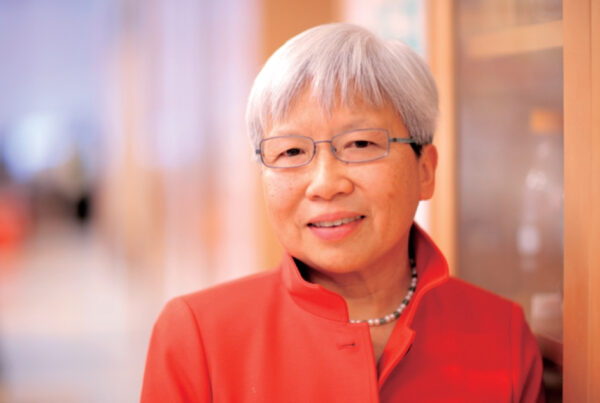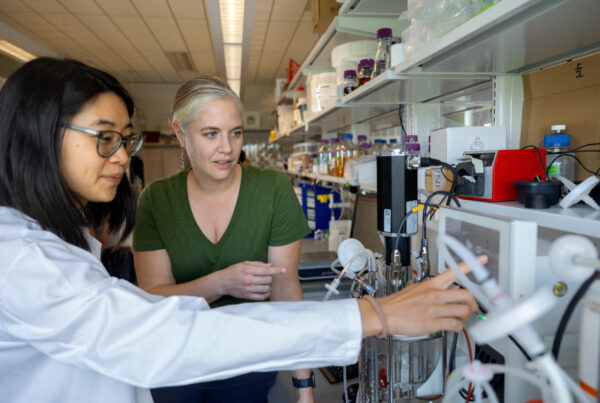Kanvas Biosciences, a Cornell-licensed startup founded during the early days of the pandemic, is pioneering a new class of microbiome-based therapeutics that could transform cancer treatment. Co-founded by Hao Shi, Ph.D. ’20, biomedical engineering professor Iwijn De Vlaminck, and microbiologist Matt Cheng, the company is built around a Cornell-developed imaging technology, HiPR FISH, that maps the microbiome in unprecedented detail. Licensed through the Center for Technology Licensing, the innovation is now powering a new generation of live biotherapeutic drugs aimed at boosting the effectiveness of cancer immunotherapy.
“As we’re building this company, we found that this technology we developed was ideally suited as a platform to develop microbiome therapeutics,” said De Vlaminck, associate professor of biomedical engineering in Cornell Engineering.
Kanvas’ lead candidate, KAN-001, acts like a synthetic stool transplant, mimicking the microbiome of “super donors” who respond exceptionally well to immunotherapy. Early studies in mice have shown that the drug outperforms actual donor material in enhancing treatment response, with human clinical trials on the horizon. The startup is also advancing a second candidate to manage colitis, a common side effect of immunotherapy. With roots in Cornell research and early support from the Center for Life Science Ventures, Kanvas exemplifies how academic innovation can shape new therapeutic frontiers and improve patient outcomes.






